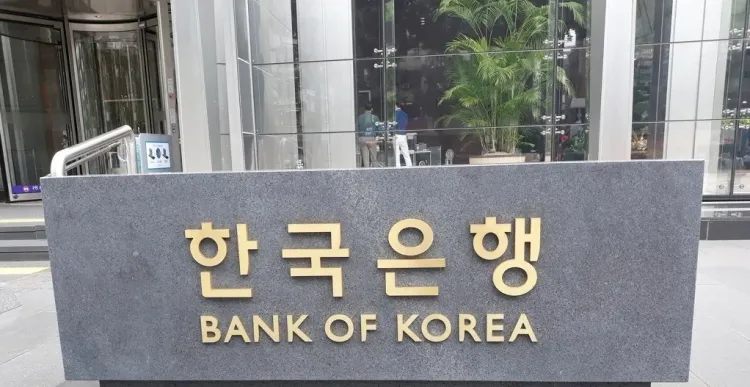Is the BOK Raising Concerns Over Financial Imbalances from Rising Housing Prices?

Synopsis
Key Takeaways
- Financial stability in South Korea is currently challenged by rising housing prices.
- The BOK warns of potential financial imbalances due to persistent housing price expectations.
- Government interventions include stricter lending regulations and increased housing supply.
- Household loans saw a significant rise in August, indicating a rebound in loan demand.
- Macroprudential policies are essential to manage housing market expectations.
Seoul, Sep 25 (NationPress) While South Korea's financial system exhibits stability, the Bank of Korea (BOK) cautioned on Thursday that ongoing anticipations of escalating housing prices may trigger financial imbalances.
According to the BOK's financial stability report, the overall financial system is robust, bolstered by the resilience of sound financial institutions and a strong external payment capacity. However, the persistent expectation of rising housing prices in Seoul raises alarms about potential financial imbalances, as reported by the Yonhap news agency.
In response, the government has enacted multiple measures aimed at curbing soaring housing prices and household debt. These measures include stricter lending regulations and initiatives to boost housing supply, which have significantly reduced home transactions.
Despite these efforts, the index indicating housing price expectations has increased since August, and certain regions in Seoul have witnessed a resurgence in price growth since the beginning of September, the BOK highlighted.
In July, household loans within the financial sector surged by 2.3 trillion won, a notable decline from the 6.5 trillion-won rise observed in June. However, in August, loan growth picked up again, climbing by 4.7 trillion won, partly due to the lag in reflecting home transactions from May and June.
The BOK emphasized the necessity of maintaining a strong macroprudential policy stance to manage housing market expectations, especially given that the slowdown in housing prices in Seoul and its metropolitan area remains limited.
Last month, the central bank decided to keep its key interest rate unchanged for the second consecutive time, balancing concerns about financial stability with the need to stimulate economic growth.
BOK Governor Rhee Chang-yong remarked that postponing a rate cut by a month or two would have minimal effect on the economy, but a significant rise in housing prices would complicate matters further.









